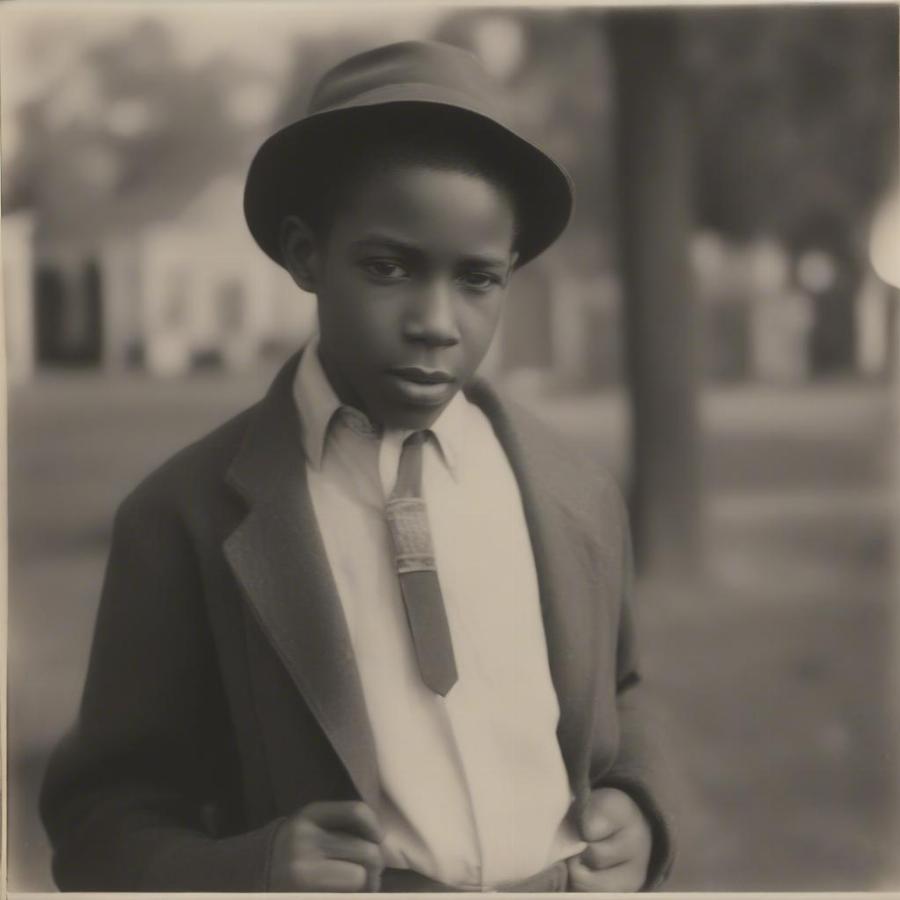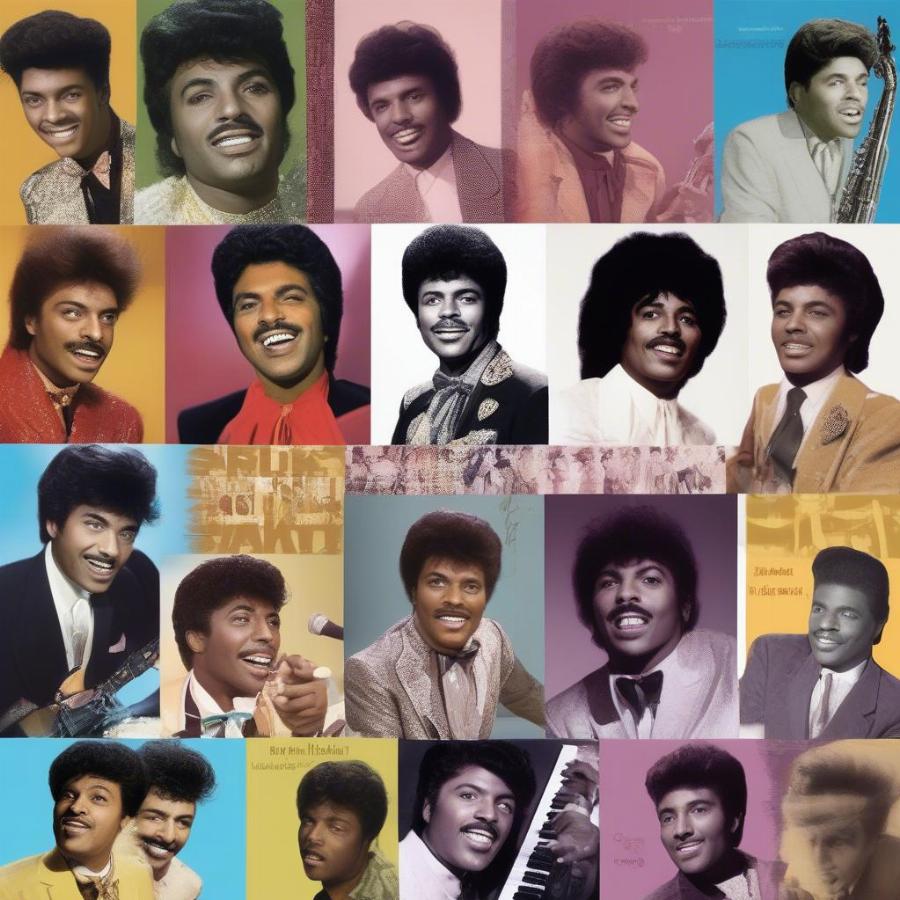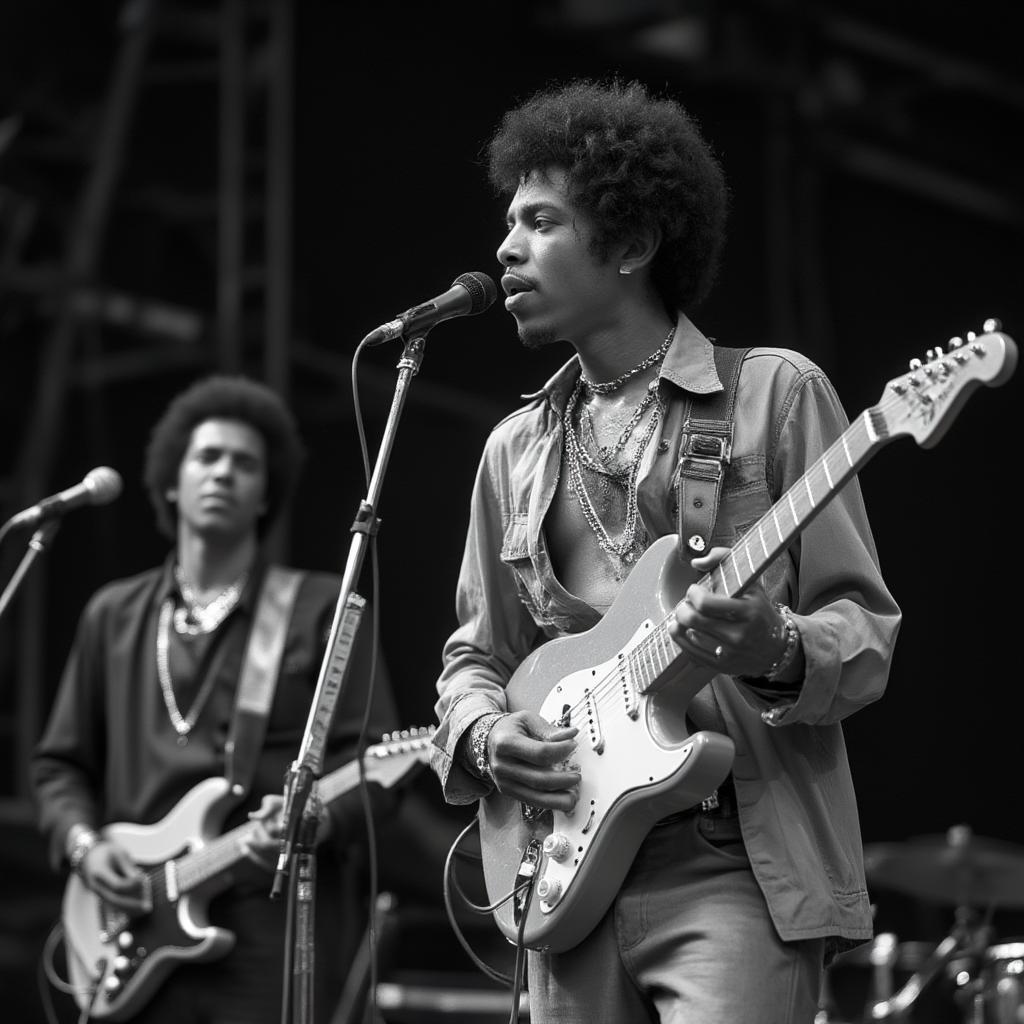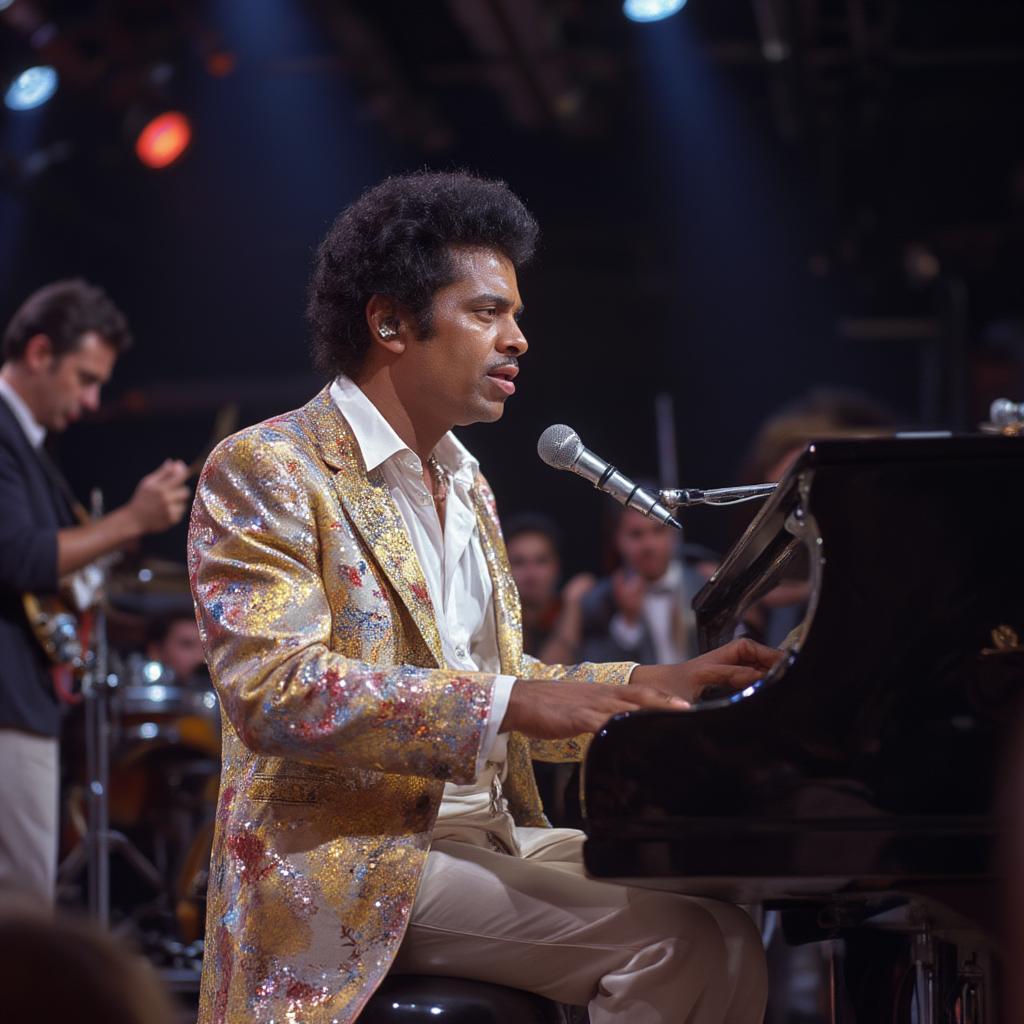Little Richard’s Reign in the 1950s: A Rock ‘n’ Roll Revolution

Little Richard exploded onto the music scene in the 1950s, a whirlwind of energy, charisma, and groundbreaking sound. His unique blend of gospel, blues, and boogie-woogie, coupled with his flamboyant persona and dynamic performances, laid the foundation for rock ‘n’ roll as we know it. This era, a period of immense cultural shift and musical innovation, witnessed the birth of a legend. Little Richard’s impact on the 1950s music scene was nothing short of revolutionary, forever changing the landscape of popular music and influencing generations of artists to come.
The 1950s saw the rise of rock ‘n’ roll as a dominant force in popular culture, and at the forefront of this revolution was Little Richard. His music was infectious, his energy unmatched. Hits like “Tutti Frutti” and “Long Tall Sally” became anthems of a generation, defying social norms and igniting a passion for music that transcended race and class. His piano playing, characterized by pounding rhythms and rapid-fire trills, was as distinctive as his soaring vocals and signature whoops and hollers. This distinct style, infused with gospel fervor and unrestrained passion, became a hallmark of his music and a major influence on the development of rock ‘n’ roll.
The Birth of a Star: Little Richard’s Early Years
Born Richard Penniman in Macon, Georgia, Little Richard’s early life was steeped in the rich musical traditions of the American South. His upbringing in a religious family exposed him to gospel music, a genre that would heavily influence his later musical style. He honed his musical skills in church choirs and traveling gospel shows, developing his distinctive vocal style and piano playing. These formative experiences laid the groundwork for his explosive entry into the world of secular music.

Tutti Frutti and the Rise to Fame
The mid-1950s marked Little Richard’s breakthrough into the mainstream. “Tutti Frutti,” released in 1955, became an instant hit, propelling him to stardom. The song’s infectious energy and suggestive lyrics, albeit sanitized for mainstream audiences, captured the rebellious spirit of the youth. It was a defining moment in the early days of rock ‘n’ roll, marking a shift away from the more conventional sounds of the time. The song’s success solidified Little Richard’s place as a major force in the burgeoning rock ‘n’ roll movement. Similar to little richard long tall sally, “Tutti Frutti” highlighted Little Richard’s electrifying stage presence and captivating performance style.
Shaking Up the Status Quo: Little Richard’s Impact on Music and Culture
Little Richard’s influence extended beyond just music. His flamboyant style, marked by extravagant costumes, energetic stage presence, and androgynous persona, challenged the conservative norms of the 1950s. He became a symbol of rebellion and self-expression, inspiring countless artists to embrace their individuality and push the boundaries of performance. His impact on the cultural landscape of the 1950s was profound, paving the way for future generations of musicians and performers to challenge societal norms and express themselves freely.

Long Tall Sally and Other Hits
Following the success of “Tutti Frutti,” Little Richard released a string of hits that further cemented his status as a rock ‘n’ roll icon. Songs like “Long Tall Sally,” “Rip It Up,” and “Lucille” became staples of the era, influencing countless artists and shaping the sound of rock ‘n’ roll. These songs showcased his versatility as a musician and his ability to connect with audiences through his infectious energy and captivating performances. His music transcended racial boundaries, appealing to both black and white audiences, a testament to the power of rock ‘n’ roll to unite people through music.
The Legacy of a Pioneer
Little Richard’s impact on music is undeniable. He was a pioneer of rock ‘n’ roll, his music and persona paving the way for generations of artists. From his dynamic stage presence to his unique vocal style, he left an indelible mark on the musical landscape. His influence can be heard in the music of countless artists, from The Beatles and Elvis Presley to Jimi Hendrix and Prince. He was a true innovator, and his music continues to inspire and excite audiences today. To further explore the connection between Little Richard and other influential artists, consider reading about bob dylan little richard. This article delves into the mutual respect and influence between these two iconic figures.

Little Richard’s 1950s Influence: A Conclusion
Little Richard’s reign in the 1950s was a period of groundbreaking musical innovation and cultural upheaval. His music, energy, and flamboyant style challenged the status quo and laid the foundation for rock ‘n’ roll as we know it. He became a symbol of rebellion, inspiring generations of artists and changing the face of popular music forever. Little Richard’s influence on the 1950s and beyond remains a testament to his enduring legacy as a true rock ‘n’ roll pioneer.
FAQ: Little Richard in the 1950s
-
What was Little Richard’s biggest hit in the 1950s? “Tutti Frutti” was his breakout hit, launching him into stardom.
-
What made Little Richard’s music so revolutionary? His blend of gospel, blues, and boogie-woogie, combined with his dynamic performance style, was unlike anything heard before.
-
How did Little Richard influence other artists? His energetic performances, unique vocal style, and flamboyant persona inspired countless musicians.
-
What was Little Richard’s real name? Richard Penniman.
-
Where did Little Richard grow up? Macon, Georgia.
-
What genre of music heavily influenced Little Richard? Gospel music.
-
What were some other popular Little Richard songs from the 1950s? “Long Tall Sally,” “Rip It Up,” and “Lucille” were all major hits.
-
How did Little Richard contribute to the cultural landscape of the 1950s? He challenged conservative norms with his flamboyant style and androgynous persona.
-
Why is Little Richard considered a rock ‘n’ roll pioneer? He helped shape the sound and style of early rock ‘n’ roll, paving the way for future generations of musicians.




